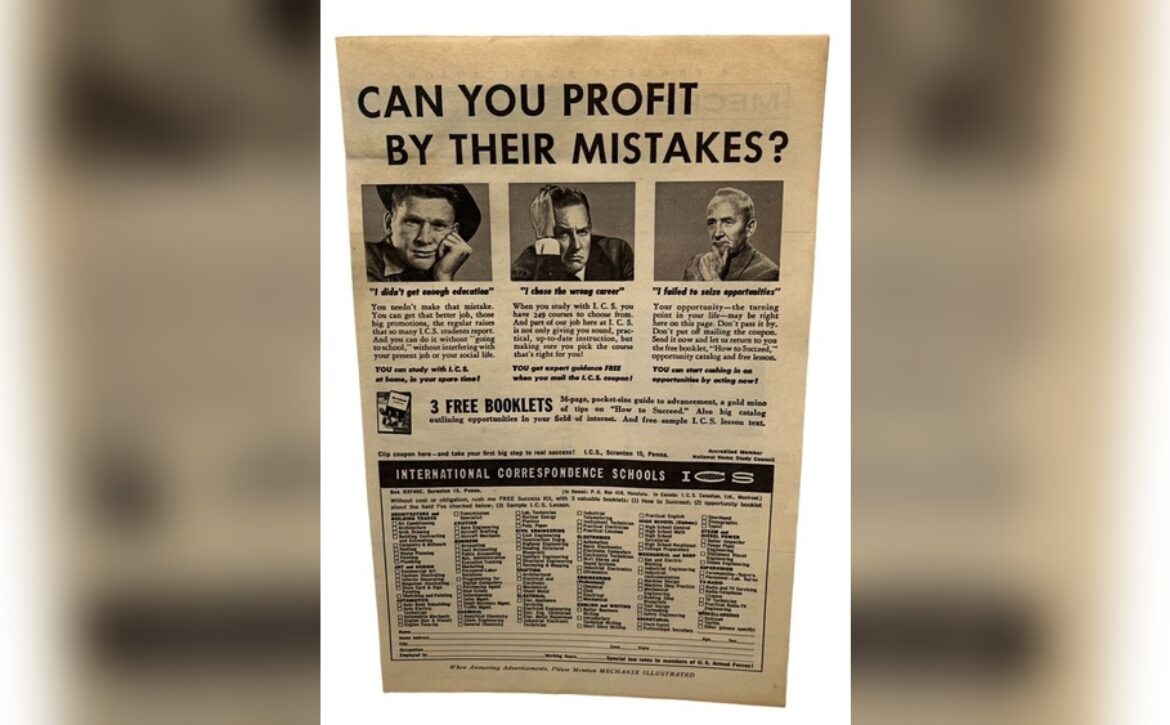
How to Become a Medical Transcription Expert: A Guide
Are you seeking a career that combines your love for language with the fast-paced world of healthcare? Imagine having the power to transform complex medical dictations into clear, accurate reports—all from the comfort of your own home.
Becoming a medical transcriptionist might be the perfect fit for you. Not only does this role offer flexibility and the opportunity to work in the booming healthcare sector, but it also allows you to make a meaningful impact by ensuring that patients receive the best care possible.
Intrigued? In this guide, we’ll walk you through the steps to kickstart your career in medical transcription, uncovering the skills you need and the paths to certification that will set you apart. Let’s dive in and explore how you can tap into this rewarding profession.
Understanding Medical Transcription
Becoming a medical transcriptionist involves understanding medical terminology and honing excellent listening skills. Training programs or online courses can help you develop these essential skills. Certification may also enhance job opportunities in this field.
Understanding medical transcription opens the door to a dynamic career that blends healthcare knowledge with linguistic precision. This profession involves listening to voice recordings made by healthcare professionals and converting them into written reports. It’s a role that demands attention to detail and a passion for accuracy, but it also offers the flexibility to work from anywhere with a steady internet connection.
What Is Medical Transcription?
Medical transcription involves transforming audio recordings from doctors and healthcare workers into text documents. These documents can be patient histories, discharge summaries, or even surgical reports. The need for accuracy is paramount, as these transcriptions become part of a patient’s medical records.
The Role Of A Medical Transcriptionist
As a medical transcriptionist, your primary task is to ensure that the spoken word is converted into a clear, written format. You must be familiar with medical terminology and be able to understand various accents and speech patterns. This role requires patience and a keen ear, as even the slightest misinterpretation can have significant consequences.
Skills Required For Medical Transcription
Strong listening skills are essential in this field. You’ll often deal with complex medical jargon, requiring a good grasp of terminology. Additionally, typing speed and accuracy are crucial; the faster and more accurately you type, the more productive you’ll be.
Training And Certification
Many successful transcriptionists begin with a certification program that covers medical terminology, anatomy, and transcription techniques. While not always mandatory, certification can enhance your credibility and open up more job opportunities. Online courses offer flexibility, allowing you to learn at your own pace.
Technological Tools For Transcription
Transcription software is a vital tool in this profession. It helps manage audio files and can even provide speech recognition features to speed up the process. Using a quality headset can also make a significant difference, allowing you to hear nuances in the recordings more clearly.
Challenges In Medical Transcription
One of the biggest challenges is deciphering unclear or mumbled speech. You might face recordings with background noise or multiple speakers. Staying focused and employing strategies like replaying the difficult sections can help overcome these hurdles.
Benefits Of A Career In Medical Transcription
This career offers flexibility, allowing you to work from home or any location that suits you. It can be a rewarding job for those who enjoy the blend of healthcare and technology. Additionally, there’s a sense of satisfaction in knowing your work contributes to accurate patient care. Medical transcription is more than just typing words; it’s about ensuring precision in healthcare documentation. Have you considered how this career could fit into your lifestyle?
Essential Skills For Transcription
To thrive in medical transcription, honing certain skills is crucial. These skills ensure accuracy and efficiency in transcribing medical dictations. Let’s explore the essential skills needed for success in this field.
Attention To Detail
Attention to detail is vital for medical transcriptionists. Each medical term must be transcribed accurately. A small error can lead to serious consequences in patient care. Always review your work to catch mistakes. This ensures high-quality transcription.
Typing Speed And Accuracy
Fast typing speeds are important for handling large volumes of work. Aim for at least 60 words per minute. Accuracy is just as crucial. Mistakes can alter the meaning of medical records. Practice regularly to improve both speed and precision. This balance is key to efficient transcription.
Language Proficiency
Strong language skills are necessary for understanding medical terminology. Good grammar and spelling are also important. Misunderstanding a word can change the context entirely. Familiarize yourself with common medical terms. This helps in accurate and quick transcription. Consistent practice will enhance your language proficiency.
Educational Pathways
Embarking on a career as a medical transcriptionist offers you the chance to work in the healthcare industry without the need for hands-on patient care. Understanding the educational pathways is crucial for success in this field. Whether you’re considering formal education or online learning, you’ll find options that fit your lifestyle and goals.
Relevant Degrees And Certifications
A degree in medical transcription isn’t always necessary, but it can set you apart. Consider pursuing an associate degree in medical transcription or healthcare documentation. This education provides a comprehensive understanding of medical terminology, anatomy, and transcription techniques.
Certifications can also boost your credibility. Look into programs like the Registered Healthcare Documentation Specialist (RHDS) or Certified Healthcare Documentation Specialist (CHDS). These certifications demonstrate your proficiency and commitment to quality.
Online Courses And Workshops
Online courses offer flexibility for busy schedules. Platforms like Coursera and Udemy provide courses on medical transcription basics and advanced skills. You can learn at your own pace, balancing work, study, and personal life.
Workshops can be a quick way to gain practical experience. Many organizations offer short-term workshops focusing on specific transcription skills. These events allow you to interact with industry professionals, gaining insights and networking opportunities.
Have you considered how online learning can fit into your life? It’s a chance to develop your skills without disrupting your daily routine.
Choosing the right educational pathway can shape your future in medical transcription. What steps will you take to become the best in your field?

Tools Of The Trade
Embarking on a career in medical transcription requires specific tools. These tools help streamline your workflow and ensure accuracy. From software to playback devices, each tool plays a crucial role. They enhance the transcription process and make your work more efficient.
Transcription Software
Transcription software is essential for medical transcriptionists. It converts audio files into text with precision. Some software offers voice recognition capabilities. This speeds up the process and reduces manual typing. Many programs come with customizable shortcuts. These help you save time and reduce repetitive tasks. Choose software that integrates with medical databases. This ensures correct terminology and improves accuracy.
Audio Playback Devices
Quality audio playback devices are vital for clear sound. They help you hear every word accurately. Headphones with noise-canceling features are beneficial. They block out distractions and focus on the audio. Foot pedals are commonly used by transcriptionists. They allow hands-free control of audio playback. This increases efficiency and minimizes interruptions. A reliable audio device can make a significant difference. It enhances your ability to transcribe quickly and accurately.
Building Experience
Building experience is crucial in becoming a successful medical transcriptionist. Hands-on practice not only sharpens your skills but also boosts your confidence. But how do you gain that valuable experience? Let’s dive into some practical paths to get you started.
Internships And Entry-level Positions
Internships offer a golden opportunity to learn from seasoned professionals. They immerse you in real-world scenarios, helping you understand the nuances of medical language. You might find yourself navigating complex terminology or deciphering accents, which are vital skills in this field.
Entry-level positions can be a stepping stone to your transcription career. They often come with on-the-job training, allowing you to hone your skills while earning. Imagine working alongside experienced transcriptionists who can offer guidance and feedback. Such roles can be a gateway to more advanced opportunities.
Volunteer Opportunities
Volunteering can be an unexpected but rewarding way to gain experience. Consider offering your services to local clinics or health organizations. You’ll not only practice transcription but also contribute positively to your community.
Volunteering can also help you build a network of contacts in the medical field. These connections might lead to future job opportunities or even mentorship. Think about it—your willingness to volunteer could open doors you never considered.
Have you thought about how these experiences could shape your career path? Taking proactive steps to gain experience could set you apart in the competitive world of medical transcription. So, what’s stopping you from jumping in? Start building your experience today and watch your skills flourish.

Navigating The Job Market
Entering the medical transcription job market can be challenging. It’s essential to stand out from the crowd. Understanding the key steps can ease your journey. Focus on building a strong resume and leveraging networking opportunities. These strategies can increase your chances of success.
Creating A Professional Resume
Your resume is your first impression. It should highlight relevant skills and experience. Use clear, concise language to describe your abilities. Include any certifications or specialized training in medical transcription. Tailor your resume for each job application to match the job description.
Ensure your contact information is up-to-date. Include an email address and phone number. A professional email address is crucial. Avoid using casual email addresses. Proofread your resume to eliminate errors. A clean, error-free resume reflects professionalism.
Networking In The Medical Field
Networking opens doors to hidden job opportunities. Attend industry events and workshops. These events allow you to meet professionals in the field. Join online forums and groups related to medical transcription. Engage in discussions and share your insights.
Building relationships with industry professionals can lead to job referrals. Keep in touch with contacts regularly. Send polite follow-up messages after meeting someone. A simple, friendly gesture can keep you in their minds. Networking is about building genuine connections.
Continuing Education
Continuing education is a cornerstone for anyone aiming to excel in medical transcription. It’s not just about acquiring initial skills; it’s about keeping those skills sharp and relevant in a rapidly evolving field. As medical practices and technologies change, so do the terms and procedures that you’ll need to understand. Staying ahead of the curve means committing to lifelong learning, which can be both challenging and rewarding.
Staying Updated With Medical Terminology
Medical terminology is like the language of health care. It evolves as new discoveries are made and treatments developed. To stay proficient, regularly review medical journals, online resources, and even apps that offer updates on the latest terms and practices.
Consider subscribing to newsletters from reputable medical associations. They often provide insights into emerging trends and terminologies. Engage with forums and online communities where professionals discuss the nuances of medical language. What new word or phrase have you learned recently that surprised you?
Attending Industry Conferences
Conferences offer a unique opportunity to learn from experts and peers in the field. Attending these events can provide hands-on workshops, seminars, and networking opportunities. These gatherings are not just about listening to lectures; they’re about engaging with the community.
Take advantage of Q&A sessions to clarify doubts and gather practical tips. Share your experiences and challenges—others might have faced similar issues and found solutions. What insight have you gained from a conference that changed your approach to medical transcription?
Continuing education is not a one-time event; it’s an ongoing journey. Keep challenging yourself to learn, grow, and adapt. How will you keep pushing your boundaries in medical transcription?

Frequently Asked Questions
What Does A Medical Transcriptionist Do?
A medical transcriptionist listens to audio recordings made by healthcare professionals. They convert these recordings into written documents. This role requires excellent listening and typing skills. Understanding medical terminology is crucial. They ensure patient records are accurate and up-to-date.
How Can I Start A Career In Medical Transcription?
To start a career, consider enrolling in a medical transcription training program. These programs teach medical terminology and transcription techniques. After completing a program, you can seek certification. Certification enhances your credentials and job prospects. Practical experience is also valuable.
Is Certification Necessary For Medical Transcriptionists?
Certification is not mandatory but highly recommended. It demonstrates your proficiency and commitment to the profession. Certified transcriptionists often have better job prospects. Organizations like the Association for Healthcare Documentation Integrity offer certification exams. Completing these exams validates your skills.
What Skills Are Essential For Medical Transcription?
Essential skills include excellent listening and typing abilities. Familiarity with medical terminology is crucial. Attention to detail ensures accuracy in transcriptions. Time management helps meet deadlines. Computer proficiency is necessary for using transcription software.
Conclusion
Becoming a medical transcriptionist is a rewarding career choice. It requires dedication and keen listening skills. Start by gaining relevant education and training. Practice regularly to improve your speed and accuracy. Consider certification to boost your credentials. Build a strong resume highlighting your skills and experience.
Stay updated with medical terminology and technology. Join online forums to connect with fellow transcriptionists. Keep learning and growing in this ever-evolving field. With hard work and persistence, success is within reach. Ready to start your journey? The healthcare industry awaits your contribution.





